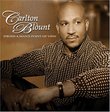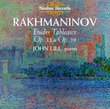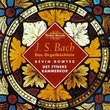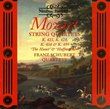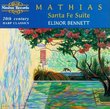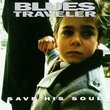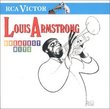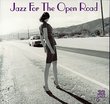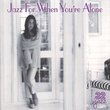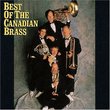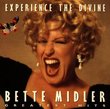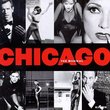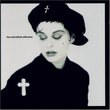| All Artists: Charles [Choral Composer] Wood, Orlando Gibbons, Herbert Howells, Franz [Vienna] Schubert, Anton Bruckner, George Frederick Handel, William H. Harris, Kenneth Leighton, John Rutter, Charles Villiers Stanford, Johannes Eccard, Henry Purcell, William [Composer] Byrd, Johann Sebastian Bach, Tomas Luis de Victoria, Thomas Morley, Joao IV of Portugal, Henry Balfour Gardiner, Stephen Farr Title: Oxford Church Anthems Members Wishing: 0 Total Copies: 0 Label: Nimbus Records Release Date: 9/5/1995 Genres: Special Interest, Pop, Classical Styles: Vocal Pop, Opera & Classical Vocal, Historical Periods, Baroque (c.1600-1750), Sacred & Religious Number of Discs: 1 SwapaCD Credits: 1 UPCs: 083603544027, 710357544026 |
Search - Charles [Choral Composer] Wood, Orlando Gibbons, Herbert Howells :: Oxford Church Anthems
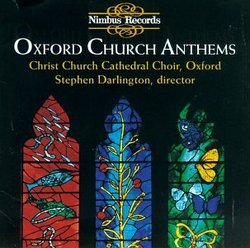 | Charles [Choral Composer] Wood, Orlando Gibbons, Herbert Howells Oxford Church Anthems Genres: Special Interest, Pop, Classical
|
Larger Image |
CD DetailsSimilar CDs
Similarly Requested CDs
|
CD ReviewsTell the rock band at your church to pack their bags! Mark Swinton | 10/26/1999 (5 out of 5 stars) "This is what church music SHOULD be. Buy this CD, and the book that goes with it, and present it to your church Choir Director and Pastor. If you're tired of all that "contemporary" TRIPE that is being shoved down your throat on Sunday mornings....buy them this cd and recreate the days when we tried to aspire to God's level......instead of bringing Him down to ours!" A fine collection Mark Swinton | 03/13/2002 (4 out of 5 stars) "The Choir of Christ Church Cathedral, Oxford, present on this disc a survey of music from the "New Church Anthem Book" - new, at least, in 1996 - which contains some of the most accessible and well-crafted music in the repertoire of the English Church. Since the book was designed for use by parish church choirs, it follows that most of the music is quite simple, and the Christ Church Choir make it sound easily achieved, but it is still enormously effective and makes a good sequence of music. The extremely close acoustic of Christ Church Cathedral (the driest cathedral acoustic in England, I believe) lends an impression of what such music might sound like in the parish church context.Some of the all-time favourites are here, as one might expect: Charles Wood's magnificent "O Thou, the central orb"; "Locus iste," arguably the most famous of Bruckner's motets; Purcell's solemn funeral sentence "Thou knowest, Lord, the secrets of our hearts"; William Byrd's poised yet anguished setting of "Ave verum corpus"; John Rutter's gem-like and highly effective setting of the beautiful Sarum Primer prayer "God be in my head." These are certainly to be heard from time to time at all the great cathedrals in England, but are no less at home in English parish churches and make for absorbing listening.Other items fit more obviously into the cathedral tradition. Orlando Gibbons, whose career ended with a brief tenure as Organist and Master of the Choristers at Westminster Abbey, enriched the worship there and in other great houses of prayer with his anthems and music for the liturgy, and his motet "Almighty and everlasting God" is a noble example of his calmer polyphonic writing. Also from the Tudor period is the dignified account of Simeon witnessing the Christ-child in the temple and declaring his faith and readiness to die in that faith in Johannes Eccard's "When to the temple Mary went." Thomas Morley produces an intense restraint in "Nolo mortem peccatoris" with its weaving vocal lines. The Renaissance is well represented in the lush motets of Victoria (his evocative setting of "O quam gloriosum") and King John IV of Portugal (the popular "Crux fidelis," often to be heard during Passiontide).Two interesting items are extracts from baroque cantatas, sung in English: "Awake thou, wintry earth" comes from Bach's Cantata 129 and features a chorale (with unmistakable harmonies) set above a continuous organ part that makes colourful use of trumpet stops; meanwhile, "Lord I trust thee" is adapted from Handel's lesser-known oratorio "Der für die Sünde der Welt" - this also has a busy organ part with flowing chordal statements by the choir above it. In like manner, Stanford's anthem "Pray that Jerusalem" consists mainly of organ, with the choir singing the verses of a hymn broken into two-line fragments, sometimes left unaccompanied to provide relief and contrast from the otherwise continuous tone colours. Meanwhile, Schubert's "Where thou reignest" is an adaptation of a partsong, of which the composer was an acknowledged master, with lyrical if at times angular melodies and soft, warm harmonies.Four anthems represent the twentieth century in its subtlest colours. Herbert Howells is best known for his canticles, most of which are beyond the capabilites of a parish church choir, but in "My eyes for beauty pine" there is an example of his more straightforward writing - this is mostly unison, with the briefest of excursions into four-part harmony. Despite its simplicity it is no less distinctive than his more celebrated works; the same could be said for the wonderful setting of "Holy is the true light" by William Harris, in which (as the liner notes put it) he manages to condense the effect of his famous double choir motets "Faire is the heaven" and "Bring us, O Lord God" into a single choir piece lasting a little over a minute and a half. Kenneth Leighton's works are often difficult, his style being the most 'contemporary' of the composers presented here, but in "Solus ad victimam" (actually in English despite the Latin title!) he shows his ability to make that style accessible and open to singers (and listeners) even of only amateur standards. The programme ends with a real war-horse: Henry Balfour Gardiner's "Evening Hymn," which is sung here in Latin ("Te lucis ante terminum") but was also set with an English metrical translation. It has a quasi-Victorian brand of sweetness and gusto that may not be to everyone's taste, but it is perfectly poised, evocative of the text and leaves one feeling spiritually replete.The Oxford Choir does itself and conductor Stephen Darlington credit: the trebles make a rich sound that easily complements the strength of the choral scholars and lay clerks (amongst whom, it appears, there were a few guest singers, including the tenor Andrew Carwood of Westminster Cathedral and the Finzi Singers). Stephen Farr, now Director of Music at Guildford Cathedral, accompanies with clarity and care, although his registrations are at times unimaginative. The brief but informative liner notes are by Lionel Dakers, a former Director of the Royal School of Church Music and editor of the "New Church Anthem Book."This is an interesting slant on the "English Anthem" collections by St. Paul's Cathedral Choir on Hyperion and the "Great Cathedral Anthems" sung by a variety of English and American Cathedral Choirs on Priory, and is quite recommendable."
|

 Track Listings (18) - Disc #1
Track Listings (18) - Disc #1

